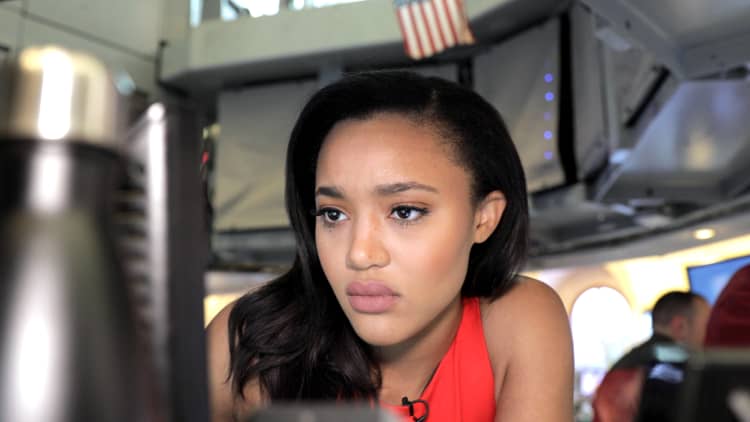On Tuesday, Senator Kamala Harris announced that she had suspended her presidential campaign.
The announcement comes after reports of struggles within her campaign, sluggish fundraising and low polling numbers.
"I've taken stock and looked at this from every angle, and over the last few days have come to one of the hardest decisions of my life," she wrote in a Medium post. "My campaign for president simply doesn't have the financial resources we need to continue."
The senator emphasized the role that money played in her decision.
"I'm not a billionaire," she stated. "I can't fund my own campaign. And as the campaign has gone on, it's become harder and harder to raise the money we need to compete."
The statement calls attention to a broader conversation about the role of money in politics. It seems to point a finger at fellow candidates running for the Democratic nomination — billionaire business tycoon and former New York mayor, Michael Bloomberg, and billionaire hedge-fund manager Tom Steyer.
Polls show that Steyer has the support of less than 1% of voters.
Bloomberg, who is estimated to be worth over $55 billion, launched his campaign on November 24. Immediately after his announcement, he spent more than $30 million on TV ads that aired on the week of Thanksgiving, surpassing former President Barack Obama as the candidate who's spent the most on TV ads in a single week.
Thanks to his late decision to run, it is too early to say how many voters support Bloomberg, but he will not be participating in the Iowa caucuses in February, and he won't be on the ballots of the other early states, New Hampshire, South Carolina and Nevada.
So far, Bloomberg has invested $57 million in TV advertising, putting his spending on track to surpass Steyer, who has spent roughly $60 million since July, according to data compiled by Advertising Analytics.
The former mayor's team has previously said he plans to spend over $100 million on his campaign and has also said he would spend $100 million on a digital ad campaign against President Donald Trump.
CNBC estimates that Bloomberg could spend $500 million before the Iowa caucuses.
According to Harris' personal financial disclosure, the Senator is likely worth between $1.9 million and $6 million. Forbes estimates that Harris is worth closer to $6 million.
The Los Angeles Times reports that she has at least $2.1 million in assets (including $250,000 in savings and a San Francisco Employees Retirement account from her time as city and county district attorney) and at least $1.7 million in liabilities.
The Harris campaign did not immediately respond to a request for comment.
The average net worth of a family in the U.S. is $692,100 according to The Federal Reserve's Survey of Consumer Finances.
The totals put Harris' net worth far below billionaires like Bloomberg and Steyer, but in line with several of the other presidential contenders.
Currently, the top polling candidates include former Vice President Joe Biden, who is reportedly worth between $2.1 million and $7.9 million, Senator Bernie Sanders, who is reportedly worth between $729,030 and $1.8 million, Senator Elizabeth Warren, who is reportedly worth between $4.8 million and $11.1 million and Senator Amy Klobuchar, who is reportedly worth between $900,025 and $2.3 million.
The other top-tier candidate is the 37-year-old mayor of South Bend, Indiana, Pete Buttigieg, who is reportedly worth less than $166,998.
Early in the race, Buttigieg stood out among the top candidates by accepting donations from lobbyists. In April, the mayor announced that he would refund gifts from lobbyists and would no longer accept campaign donations from registered lobbyists.
Like this story? Subscribe to CNBC Make It on YouTube!
Don't miss:



